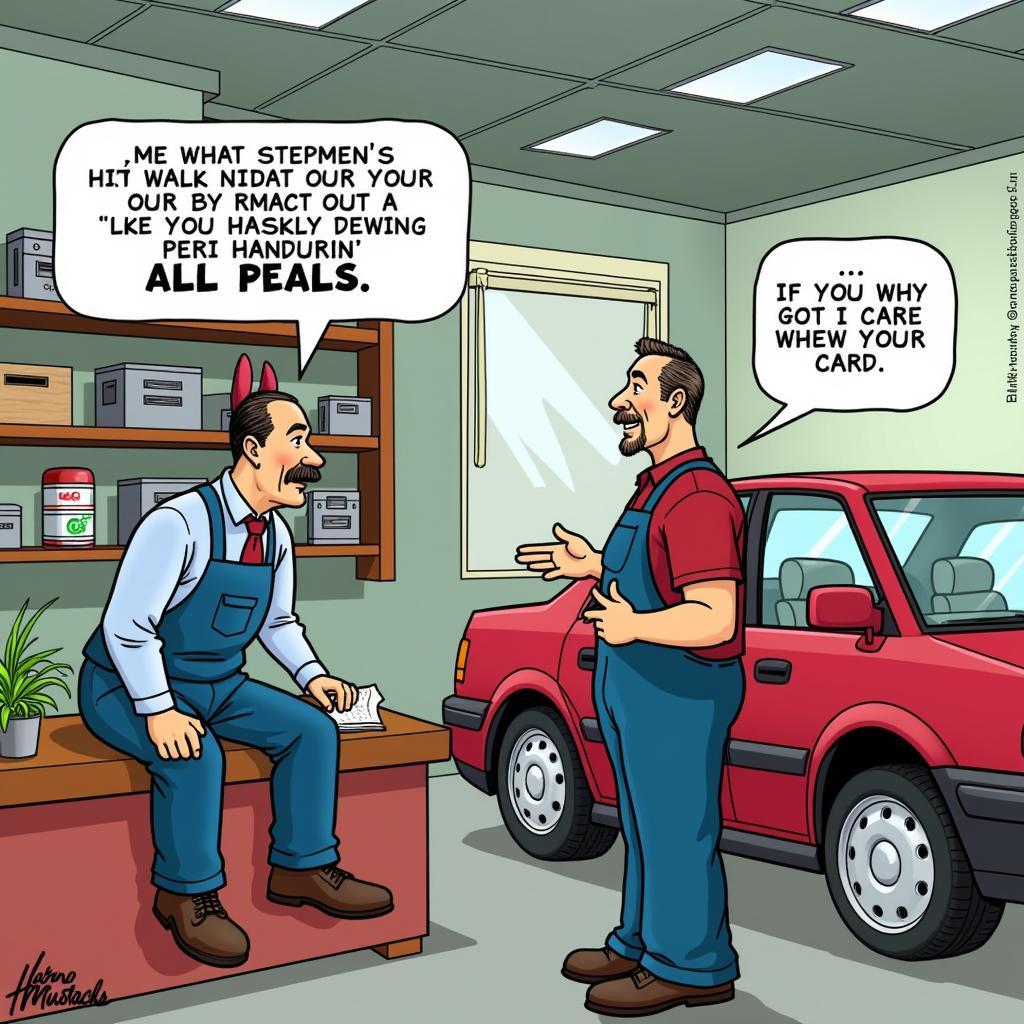Car Engine Valve Problems can significantly impact your vehicle’s performance, fuel efficiency, and overall health. Understanding the function of valves, common problems, symptoms, and solutions is crucial for any car owner, mechanic, or technician. This guide delves into the intricacies of these issues, providing valuable insights for troubleshooting and resolving them effectively. After reading this, you’ll be well equipped to tackle those pesky valve problems.
Engine valves are essential components that control the flow of air and fuel into the combustion chamber and the exhaust gases out. These valves, located in the cylinder head, open and close precisely to ensure optimal engine operation. If these valves malfunction, it can lead to a cascade of issues, affecting your car’s performance and longevity. For more on a different car component issue, you can read about car nozzle problems.
Understanding Car Engine Valves
Engine valves are typically made of durable materials like steel or titanium to withstand high temperatures and pressures. They work in sync with the pistons and camshaft to regulate the engine’s breathing process. Two primary types of valves exist: intake valves and exhaust valves. Intake valves allow the air-fuel mixture into the cylinder, while exhaust valves expel the burnt gases after combustion. A malfunction in either can cause significant problems.
Common Car Engine Valve Problems
Several issues can plague car engine valves, ranging from minor wear and tear to catastrophic failures. Burnt valves, worn valve guides and seals, bent valves, and sticking valves are among the most frequent culprits. Understanding these problems is the first step in effectively diagnosing and fixing them.
Burnt Valves
Burnt valves occur when excessive heat damages the valve face and seat, preventing proper sealing. This can lead to compression loss, power reduction, and increased emissions.
Worn Valve Guides and Seals
Worn valve guides and seals can cause oil leaks into the combustion chamber, resulting in blue smoke from the exhaust and increased oil consumption. Replacing these worn parts is essential to prevent further damage.
Bent Valves
Bent valves are often caused by a broken timing belt or chain. This can result in a collision between the valves and pistons, leading to severe engine damage.
Sticking Valves
Sticking valves can be caused by carbon buildup or other debris, hindering their smooth operation. This can lead to misfires, rough idling, and reduced engine performance. To understand other mechanical issues, check out what is a mechanical problem on a car.
Diagnosing Car Engine Valve Problems
Diagnosing car engine valve problems often involves a combination of visual inspection, compression tests, and listening for unusual engine noises. A compression test can reveal low compression in affected cylinders, indicating a potential valve issue. Unusual noises like tapping or clicking can also be a sign of valve problems. If your car has heating problems in addition to these, see how to diagnose car heater problems.
Solutions for Car Engine Valve Problems
Depending on the severity of the problem, solutions for car engine valve problems can range from simple adjustments to more extensive repairs. Replacing worn valve guides and seals, grinding or replacing burnt valves, and repairing or replacing bent valves are common solutions. Regular engine maintenance, including timely oil changes and checking the timing belt/chain, can help prevent many valve problems. For those with specific car models, you might find articles like 1991 Lincoln Town Car problems or MG cars problems helpful.
Preventive Maintenance for Car Engine Valves
Preventive maintenance plays a crucial role in keeping your engine valves healthy. Regular oil changes ensure proper lubrication, reducing wear and tear on the valves and other engine components. Checking the timing belt or chain according to the manufacturer’s recommendations is also essential to prevent catastrophic valve damage.
“Regular maintenance is like brushing your teeth for your car’s engine. It keeps everything running smoothly and prevents bigger problems down the road,” says John Smith, a seasoned automotive engineer with over 20 years of experience.
Conclusion: Keeping Your Valves in Top Shape
Car engine valve problems can range from minor annoyances to major engine failures. Understanding these problems, their symptoms, and solutions is crucial for maintaining your car’s performance and longevity. Regular maintenance and timely repairs are key to keeping your valves in top shape and ensuring a smooth, efficient ride. If you are experiencing any of the symptoms mentioned above, contact us at Autotippro for expert assistance. Our team is ready to help you get your car back on the road.
Contact AutoTipPro at +1 (641) 206-8880 or visit our office at 500 N St Mary’s St, San Antonio, TX 78205, United States.
“Addressing valve issues promptly can save you a lot of money and headaches in the long run,” adds Maria Garcia, a certified mechanic specializing in engine diagnostics. “Don’t ignore those warning signs; get your car checked out by a professional.”
FAQ
-
What are the most common signs of car engine valve problems? Common signs include decreased engine performance, rough idling, unusual engine noises (tapping or clicking), blue smoke from the exhaust, and increased oil consumption.
-
How can I prevent car engine valve problems? Regular oil changes, timely timing belt/chain replacement, and using quality fuel are crucial for preventing valve problems.
-
What is a burnt valve? A burnt valve occurs when excessive heat damages the valve face and seat, preventing proper sealing.
-
What causes bent valves? Bent valves are often caused by a broken timing belt or chain, leading to a collision between the valves and pistons.
-
How are car engine valve problems diagnosed? Diagnosis often involves visual inspection, compression tests, and listening for unusual engine noises.
-
Can I fix car engine valve problems myself? While some minor adjustments might be possible, it’s generally recommended to seek professional help for valve problems.
-
How much does it cost to fix car engine valve problems? The cost varies depending on the severity of the problem and the type of repair needed. It’s best to get a quote from a qualified mechanic.





Leave a Reply